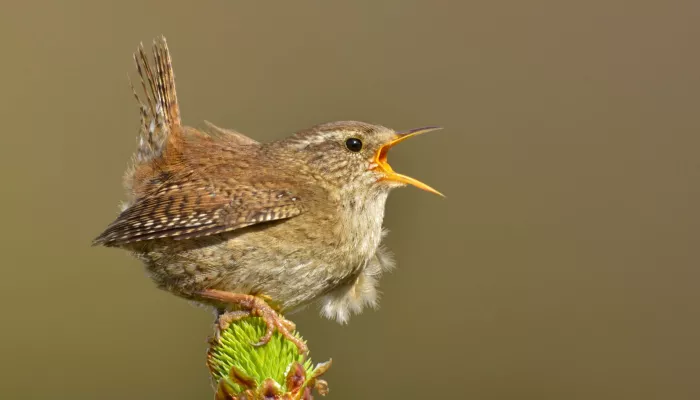| Statistics | |
|---|---|
| Length: | 10cm |
| Wingspan: | 15cm |
| Weight: | 10g |
| Average Lifespan: | 2 years |
The tiny wren, with its typically cocked tail, is a welcome and common visitor to gardens across town and countryside. It builds its domed nests in sheltered bushes and rock crevices.
About
The diminutive wren can be found in almost any habitat where there are insects to eat and bushes or rock crevices in which to build their domed nest out of moss and twigs. In fact, the wren is the most common breeding bird in in the UK; there are currently 8.6 million breeding wren territories. It is scarcer in northern England and Scotland and upland areas.
How to identify
A tiny, brown bird with a short, cocked tail and a loud voice, the wren is unmistakable.
Did you know?
There are a number of subspecies of wren, including the Fair Isle wren (Troglodytes troglodytes Fridariensis) and the St Kilda wren (Troglodytes troglodytes hirtensis). Both are endemic breeding birds of their respective isles in Scotland.

